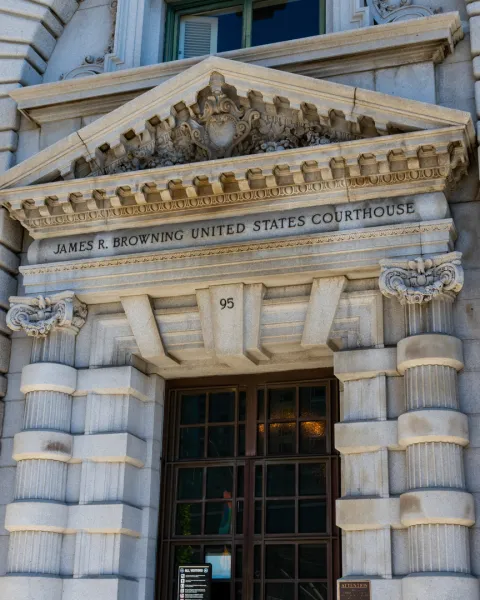Since 2021, the challenge to California’s Assembly Bill (AB) 51 (on employment arbitration) has been in limbo awaiting the U.S. Court of Appeals for the Ninth Circuit’s decision on a petition to rehear the appeal en banc. On August 22, 2022, instead of granting or denying the petition for rehearing en banc, the Ninth Circuit made a surprise decision to withdraw its prior opinion and grant a panel rehearing.
Background
Under AB 51, employers are prohibited in California from requiring employees to sign as a condition of employment or employment-related benefits arbitration agreements concerning disputes arising under the California Fair Employment and Housing Act or California Labor Code. AB 51 purports to apply to any arbitration agreement entered into, modified, or extended on or after January 1, 2020.
As AB 51 took effect in early 2020, a California federal district court granted the U.S. Chamber of Commerce’s request for a preliminary injunction, enjoining enforcement of AB 51 with respect to arbitration agreements governed by the Federal Arbitration Act (FAA). The district court ruled that AB 51 put arbitration agreements on an unequal footing with other contracts, in violation of the FAA, by imposing a higher consent requirement on arbitration agreements and potential civil and criminal penalties against employers seeking to enter into arbitration agreements. The State of California appealed the preliminary injunction to the Ninth Circuit.
In 2021, a divided Ninth Circuit panel held that the FAA does not completely preempt AB 51. Chamber of Commerce of the U.S., et al. v. Bonta, et al., 13 F.4th 766 (9th Cir. 2021). The panel concluded that the FAA does not preempt AB 51 to the extent that AB 51 seeks to regulate an employer’s conduct prior to executing an arbitration agreement. The panel held that the FAA preempts AB 51 only to the extent that AB 51 seeks to impose civil or criminal penalties on employers who have successfully executed arbitration agreements governed by the FAA. In other words, according to the prior panel opinion, an employer who successfully requires an arbitration agreement as a condition of employment in contravention of AB 51 cannot be subject to AB 51’s penalties (so long as the agreement is governed by the FAA), whereas an employer who unsuccessfully attempts to require arbitration as a condition of employment can be subject to AB 51’s penalties. Judge Sandra Ikuta wrote a vigorous dissent, analogizing the “tortuous ruling” to a situation where it is “unlawful for a [drug] dealer to attempt to sell illegal drugs, but if the dealer succeeds in completing the drug transaction, the dealer cannot be prosecuted.”
The U.S. Chamber of Commerce soon thereafter filed a petition for rehearing en banc, which the Ninth Circuit deferred pending the U.S. Supreme Court’s decision in Viking River Cruises v. Moriana. The U.S. Supreme Court issued its decision in Viking River Cruises on June 15, 2022, and subsequently denied the respondent’s petition for rehearing.
On August 22, 2022, instead of granting or denying the petition, the Ninth Circuit made a surprise decision to withdraw its prior opinion and grant a panel rehearing. Judges Ikuta and William Fletcher voted in favor of withdrawing the panel opinion and granting rehearing. Judge Carlos Lucero, sitting by designation from the Tenth Circuit, voted against rehearing.
What’s Next
The Ninth Circuit panel will set a date for the rehearing. The fact that Judge Fletcher agreed with Judge Ikuta to withdraw the panel decision and rehear the matter may indicate a likelihood that the Ninth Circuit three-judge panel might conclude the FAA preempts AB 51 in its entirety. In the meantime, the district court’s preliminary injunction enjoining enforcement of AB 51 remains in place pending a new opinion by the Ninth Circuit panel.
Jackson Lewis attorneys will continue to track developments related to AB 51. If you have questions about AB 51 or arbitration agreements, please contact a Jackson Lewis attorney to discuss.
© Jackson Lewis P.C. This material is provided for informational purposes only. It is not intended to constitute legal advice nor does it create a client-lawyer relationship between Jackson Lewis and any recipient. Recipients should consult with counsel before taking any actions based on the information contained within this material. This material may be considered attorney advertising in some jurisdictions. Prior results do not guarantee a similar outcome.
Focused on employment and labor law since 1958, Jackson Lewis P.C.’s 1,000+ attorneys located in major cities nationwide consistently identify and respond to new ways workplace law intersects business. We help employers develop proactive strategies, strong policies and business-oriented solutions to cultivate high-functioning workforces that are engaged and stable, and share our clients’ goals to emphasize belonging and respect for the contributions of every employee. For more information, visit https://www.jacksonlewis.com.



